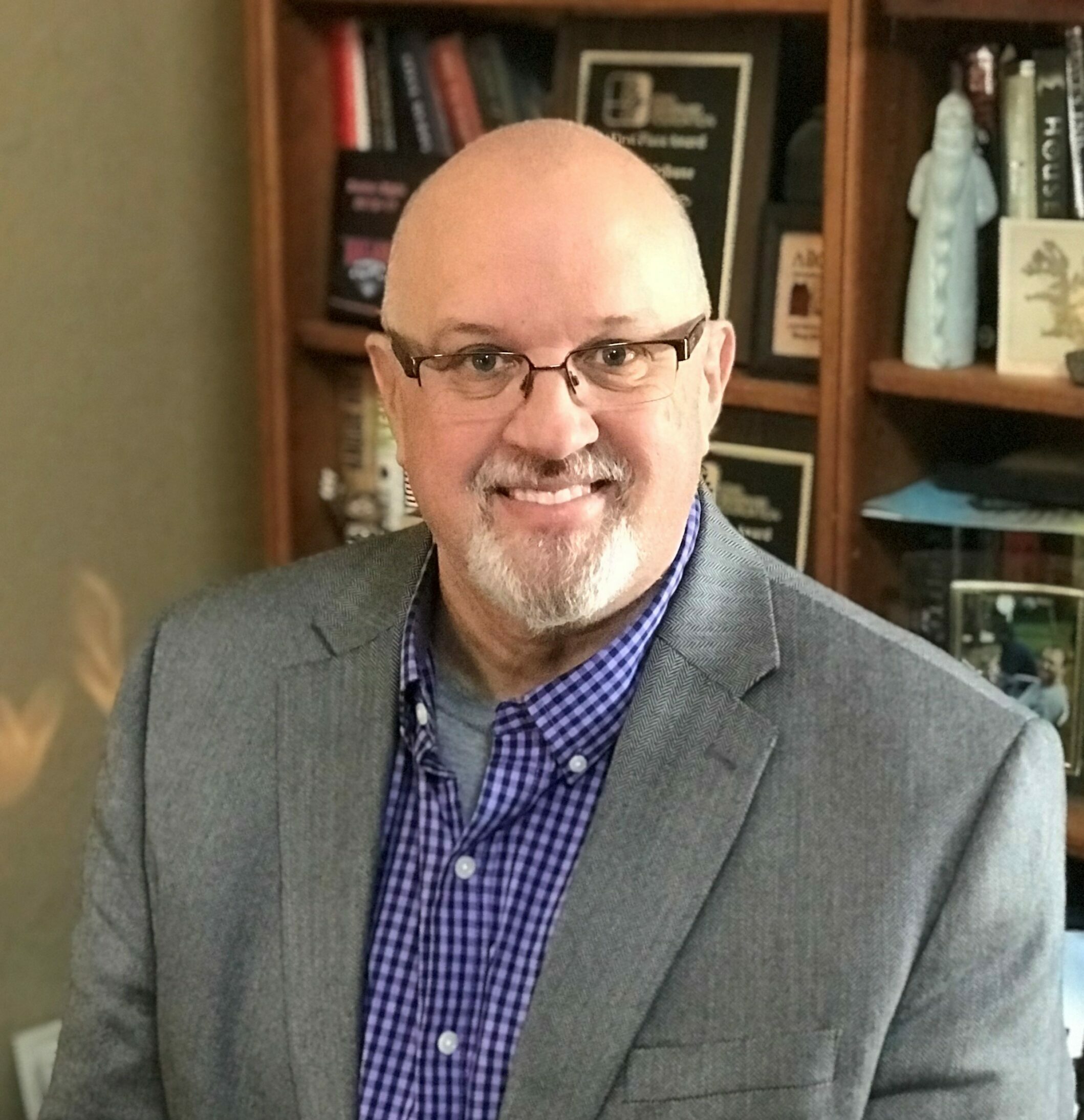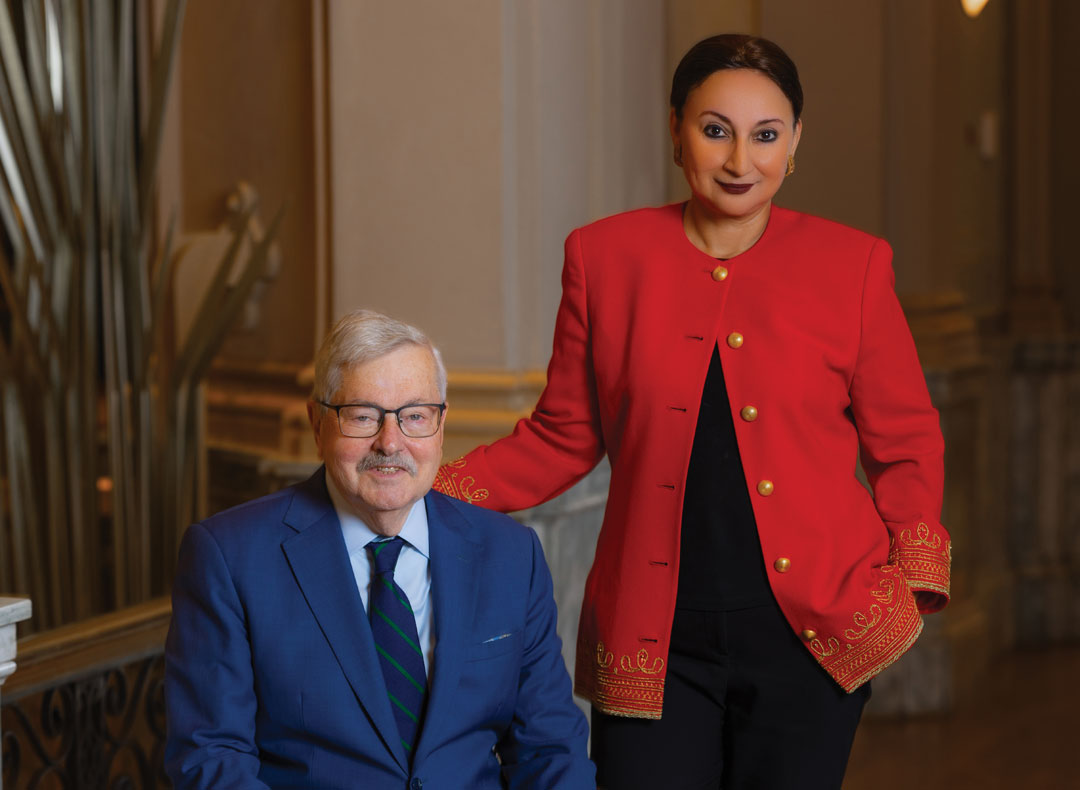Branstad to retire as World Food Prize president
Husain to assume World Food Prize reins

Michael Crumb Nov 19, 2024 | 6:00 am
5 min read time
1,258 wordsAg and Environment, All Latest News, Economic Development, Government Policy and Law, Key Leadership ChangesTerry Branstad, who has spent more than a half-century in public service, will retire as president of the World Food Prize Foundation on Jan. 31 after serving in the role for two years.
In making the announcement, the foundation said that its chief operating officer, Mashal Husain, will be promoted to president. The foundation also announced that it will create a new chief executive role that will be focused on organizational leadership and diplomacy. That position, which will be filled through a global search, remains untitled.
Branstad, 78, served as Iowa’s governor from 1983 to 1999, and then again from 2011 to 2017, when he was appointed U.S. ambassador to China by President Donald Trump. He has led the World Food Prize Foundation since February 2023, succeeding Barbara Stinson to become only the third president in the organization’s history.
Branstad, who grew up in northern Iowa’s Winnebago County, served in the Iowa House of Representatives from 1973 to 1979.
In an interview with the Business Record, Branstad said he credits two of his eighth grade teachers for sparking his interest in public service.
“I’m a farm kid and went to high school in Forest City, and I had a couple of great eighth grade teachers … who taught history and civics and Iowa history and they really got me interested in a career in public service,” he said.
The World Food Prize was founded in 1986 by Norman Borlaug, who won the Nobel Peace Prize in 1970 for his work to improve the world’s food supply. It recognizes an individual whose work and innovation have helped fight hunger worldwide. Borlaug, a Cresco, Iowa, native who was known as the father of the “Green Revolution,” died in 2009.
As governor, Branstad led efforts with businessman John Ruan Sr. to bring the foundation to Iowa and championed its work and its emphasis on youths in STEM in Iowa.
“For many years, I admired the foundation’s commitment to advancing global food security, and I have been inspired by the exceptional leaders and visionaries it recognizes,” he said in a news release announcing his retirement. “Leading the World Food Prize Foundation has been a rewarding experience, given my personal interactions with Dr. Borlaug for over a decade.”
According to the release, during his tenure as World Food Prize Foundation president, Branstad worked to “deepen its impact across generations, industries and borders.”
“It has been a privilege to help strengthen the World Food Prize Foundation’s influence and impact in the dynamic global food and agriculture landscape,” he said. “I am proud of how we’ve expanded our reach and deepened our commitment to building sustainable, resilient food systems worldwide.”
Brandstad said the World Food Prize needs to stay the course in its fight against global poverty and food insecurity.
“I have the greatest respect for the meticulous organization and hard work that goes into making the Borlaug Dialogue a great success in the presentation of the World Food Prize,” Branstad said. “I would encourage them never lose sight that we have the World Food Prize here because this is not only the agricultural capital of America but I think the world, and we are real proud of Borlaug’s idea that nobody should starve in this world and we want to make sure people have nutritious food wherever they live.”
He said the World Food Prize Foundation also needs to continue to encourage young people to pursue careers in agriculture and agriculture research.
“That’s what Norman Borlaug wanted and that’s what we’re focused on doing,” Branstad said.
Paul Schickler, chair of the World Food Prize Foundation’s board, said that Branstad’s leadership “has left an indelible mark” and strengthened the foundation’s global presence and laid the groundwork for future growth.
“Together with the [foundation] board and management team, Ambassador Branstad deepened relationships with partners while forging connections across the entire global food supply,” Schickler said in the release.
Husain will become the foundation’s fourth president — and fifth overall leader — when she assumes its reins.
During her time with the foundation, she has played a key role in shaping its growth and strategic direction.
Schickler said Husain’s expertise and passion made her the ideal candidate to lead the foundation.
“Husain has helped strengthen the foundation’s financial integrity, expand donor relationships, increase its programming and deepen its engagement within the global food security community,” he said in the release.
According to the release, Husain’s multicultural upbringing combined with her academic accomplishments and her work in health care and strategic development give her a “nuanced understanding of diverse perspectives and equips her with a comprehensive approach to leadership.”
She was born and grew up in Pakistan, later moving to Tanzania, Manila, Philippines, and Bangkok, Thailand, before coming to the U.S.
“In many of these countries I witnessed a lot of food insecurity, poverty and hunger,” Husain said in an interview with the Business Record.
She said it’s those experiences that have driven her work with the World Food Prize and what will continue to inspire her as its next president.
“It’s the fabric of who you are, it’s in your DNA when you live around it, witnessed it and seen it all around you,” she said. “I think you can never be desensitized to that poverty and food insecurity. It’s the front and center priority for me and it’s something I reflect on and think about on a daily basis.”
Husain described herself as a shy little girl, attending international schools as a child. She learned English at the age of 7.
“Now that I reflect on that, what an interesting perspective that gave me,” she said. “I grew up being very comfortable with people from all over the world. I grew up embracing a very global perspective. The world was a small place to me. I grew up embracing cultures, languages, customs, practices and religions all over the world.”
Husain moved to Des Moines in 1999. She worked at Blank Children’s Hospital and later at Principal Financial Group before joining the World Food Prize in 2008.
“It was serendipitous, having this incredible international journey, then right here in Des Moines I find my niche not only in terms of the global impact I can make, the international relationships I can forge but also impact what I think is the most important topic in the world: hunger,” Husain said.
She said it’s critical to not let world hunger get bogged down in politics.
“World hunger is not a political issue,” Husain said. “I think it should be the thing that brings us all together. It should be the point that doesn’t divide us; it should be a unifying point.”
She said the biggest challenge facing the world in the fight against poverty and food insecurity will be housing and feeding 9 billion people by 2050.
“And me in my small way, I want to make a difference in addressing that challenge, and bring voices together from all over the world regardless of what side of the aisle you’re on, regardless of what part of the world you’re from and bring us all together to address and tackle this issue,” Husain said.
For his part, while he’s stepping down as president, Branstad said he’ll continue volunteering with and supporting the World Food Prize, as well as “some other things.”
“It’s really been fun to be involved in this, but I just felt that it was time to retire,” he said. “Not having the obligation to go to work pretty much every day is kind of nice.”

Michael Crumb
Michael Crumb is a senior staff writer at Business Record. He covers real estate and development and transportation.










